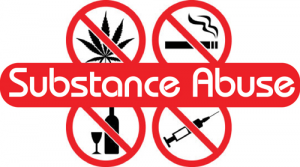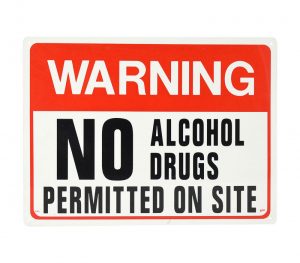
 Alcohol & Substance Abuse Disorder
Alcohol & Substance Abuse Disorder
If you or someone you know suffers from substance abuse, please call the Substance Use Disorder Helpline, offered by United Health Care, at 1-855-780-5955 to speak with a licensed clinician or you can call our Employee Assistance Program to speak with a counselor, free & confidential, at 1-888-628-4809.
The use of drugs and alcohol by employees at work or an employee attending work under the influence of drugs or alcohol, can have serious consequences for the safety of other employees, as well as for the employee affected.
Drugs and alcohol affect a person’s concentration, physical coordination, alertness and judgment. These symptoms present significant safety issues for employers, especially when combined with the use of machinery, safety equipment and driving.

Alcohol & Substance Abuse Disorder
Alcohol & Substance Use Disorder involves excessive and compulsive use of alcohol and drugs. It can cause many health problems or disabilities, as well as limiting your ability to meet your responsibilities at work, school, or home. Alcohol & Substance Use Disorder is a disease, not a failure of will or weakness of character. It can be serious and life threatening, but it is also treatable. Many people recover if they seek the proper care. Help is always nearby.
What is alcoholism?
Alcohol Use Disorder, also known as alcoholism, is excessive alcohol use that causes symptoms affecting the body, thoughts and behavior. Drinking too much alcohol is associated with a risk of developing serious health problems, such as mental and behavioral disorders, including alcohol dependence, major non-communicable diseases, such as liver cirrhosis, possible cancers, cardiovascular diseases and even injuries resulting from violence, road clashes or collisions. There is no absolute number of drinks per day or quantity of alcohol that defines Alcohol Use Disorder, but above a certain level, the risks of drinking increase significantly.
Cirrhosis of the Liver: A degenerative disease of the liver resulting in scarring and liver failure.
What are opioids?
Opioids are prescription only narcotic pain medications. They treat and manage moderate to severe pain by blocking pain signals in the brain. The most common opioid medications include:
- hydrocodone – common brands include Vicodin, Lorcet & Lortab
- oxycodone – common brands include Percocet, OxyContin, Roxicodone & Xtampza ER
- morphine – common brands include MS Contin, Kadian & Avinza
- fentanyl – common brands include Duragesic & Fentora
Doctors have prescribed opioid medications to treat pain for many years. They were always thought to be safe and not addictive. That thought has been proven wrong however. Opioids has caused millions of people around the world to become dependent on these types of medications.
What risks are associated with taking opioids?
Tolerance – needing higher & higher doses to achieve the same effect.
Dependence – having symptoms of withdrawal when the medication is stopped.
Addiction – uncontrollable cravings & an inability to control drug use.
Overdose or even death.
What types of treatment programs are available?
When it comes to treatment, there is no “one size fits all” solution because everyone’s situation is different. In general, treatment options need to be individualized and may include one or more of the following:
- Detoxification
- Local, short term, intensive residential treatment
- Medication assisted treatment
- Intensive outpatient treatment
- Individual counseling or group therapy
Medication Assisted Treatment (MAT)
Did you know that there are many different types of medications for alcohol and drug use? Those medications are given under strict supervision by a doctor, that safely help control withdrawal symptoms and cravings. The medications give the patient time to recover and reduces the risk of relapse. Research shows that MAT is the most promising treatment today, and when combined with counseling and other support, MAT is extremely effective.
Once treatment is complete, connection to support systems in your community and transition programs are vital. Recovery is a life long process. It is so important that one remains engaged in outpatient treatment and aftercare programming once formal treatment is completed. The Substance Use Disorder Helpline and Tri-Lakes Services, Inc. Employee Assistance Program can offer guidance and resources to make transitioning from treatment back to home and work a little easier.
Again, if you or someone you know needs help with alcohol or substance abuse, please reach out for help.
UNITED HEALTH CARE: Substance Use Disorder Hotline 1-855-780-5955
Tri-Lakes Services, Inc.: Employee Assistance Program 1-888-628-4809
